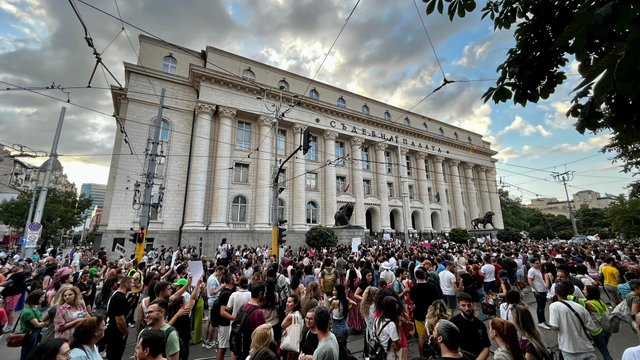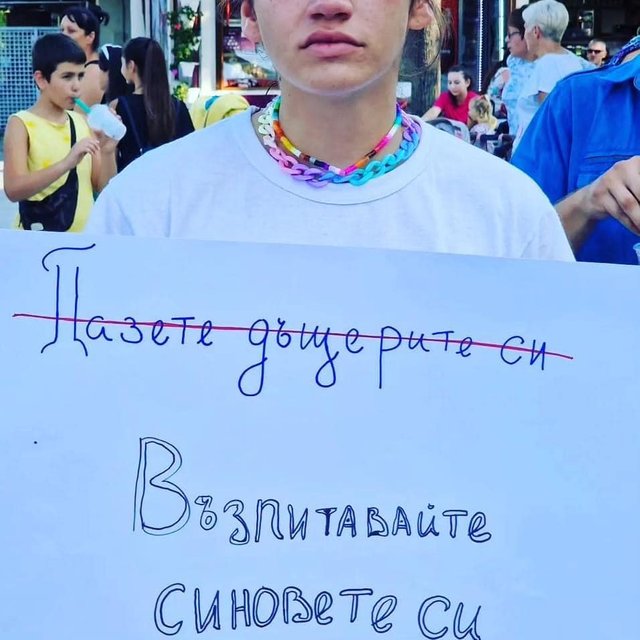The February Contest#1 by sduttaskitchen| How can we overcome domestic violence?
Hi there. I will explain how things stand from a professional psychological perspective. I will share with you the Triangle of Stephen Karpman, an American psychotherapist. He also calls it the "Drama Triangle." As people interact with others, they unknowingly reenact painful experiences from their past within Karpman’s triangle, where they assume one of three roles: Victim, Rescuer, or Aggressor/Persecutor. Each role has a "primary entry point" through which people enter the triangle.
Victim
The Victim speaks primarily from the wounded inner child. It feels absolutely helpless and vulnerable, unable to cope with life’s challenges on its own. The role of the Victim leads to a dependent type of behavior, where they unconsciously seek a strong figure to take care of them. In the role of the Victim, people are unable to take responsibility for their own lives. As a result, they unconsciously feel secure only when they submit to authority figures. At the same time, they experience intense anger because these figures do not always take care of them properly. The Victim often provokes others to interact with them either as Persecutors or Rescuers. The Victim attracts Persecutors because they themselves tend to control the lives of others. Through guilt, which the Victim evokes in Persecutors, they manage to gain emotional and material benefits. At the same time, the self-pity that the Victim experiences in interactions with Persecutors helps them avoid feeling responsible for their own life. The Victim remains stuck in an unhappy present, constantly blaming others for their problems and taking no real steps toward change. They are always waiting for someone to save them and take care of them. In this role, the Victim never grows up and never takes life into their own hands!
Aggressor/Persecutor
Persecutors try to have complete control over their relationships with others. They unconsciously perceive the world as a dangerous place, full of invisible threats lurking everywhere. This internal logic drives them to act first to protect themselves. They do this by dominating others, using ultimatums and threats to subjugate them. Their main weapon is blaming others. People never do things the way they want. They tend to create conflicts over the smallest daily matters. Anger becomes their primary fuel, giving them energy. Persecutors have a strong need for others to constantly express respect and submission to them. Their sense of superiority over others is often a compensation for their own feelings of powerlessness. In this role, they do not tolerate or respect different opinions and try to eliminate them using any means available from the very beginning. They are deeply convinced that others deserve the aggression they unleash upon them. In most cases, Persecutors had parents in childhood who treated them aggressively and did not respect their personal boundaries. This experience makes them unwilling to relinquish control, regardless of the price they pay in their own lives. They simply need Victims whose lives they can fully control, creating the illusion that they are caring for them!
Rescuers
Rescuers perceive themselves as selfless helpers. Saving others is their primary mission in life. Behind this role often lies an ancient belief that they themselves are not worthy of being loved. The only way for them to experience love is by making others emotionally dependent on them. Beneath their seemingly selfless helping nature hides a desire to control the people whose lives they enter as rescuers. Their deepest unconscious fear in this role is that they might end up alone in this world. They themselves suffer from low self-esteem, which they boost only by taking care of others' problems. However, in this role, if they do not receive the necessary recognition for their actions, they may develop depressive symptoms, and their self-worth may collapse. As rescuers, they do not respect others’ boundaries. They sometimes offer help even where it has not been asked for.
How Can People Break Free When They Are Stuck in One of the Roles in This Triangle?
To begin with, it is important to learn to recognize one’s emotions and behaviors when assuming one of these roles. The Victim repeats the same mantra: "Poor me." They always believe that others are to blame for their emotions and that people treat them unfairly. The Aggressor constantly points out others' mistakes, repeating phrases like "It's your fault" and "You'll get what you deserve." The Rescuer often uses expressions like "I will help you now" or "Everything will be under control." Recognizing the underlying beliefs that drive each role is crucial. The Victim believes that nothing in their life depends on them - they are always at the mercy of fate, circumstances, or others. To break free from this role, they need to mature, walking the path from a dependent child to a fully developed adult. It is essential for them to receive love from others, but at the same time, those around them must set clear boundaries and firmly communicate that they are not responsible for the Victim's life. Only when the Victim takes responsibility for their actions will they discover their inner strength and confidence, realizing they have the ability to manage their own life.
I will stop at the Victim. I believe you have understood the patterns, and it has become clear where violence most often originates.
A protest against violence against women took place in Sofia, Bulgaria in 2023. The reason for the protest was that a young man shaved his girlfriend's hair and cut her body with razor blades.

Here, I am excluding cases in countries where marriage happens against a person’s will - those driven by poverty, where one person is "given away in exchange for 50 gold coins." Whether it is due to "traditions" that must be upheld because parents and ancestors were married the same way, or due to social pressure - "You’re getting too old; there’s no more time…!" I am also excluding countries where human life is disregarded and considered worthless. In such places, the victims of violence are always women - stoned, humiliated, and publicly executed. We all know the system must change, but in these countries, progress and new beliefs struggle to take root, especially when fear is deliberately ingrained in every city, village, street, and home...

The first line says: Protect your daughters. Below it, it says: Raise your sons.
I will conclude with this: our relationships with others depend on our relationship with ourselves. We can express our own needs in an authentic and healthy way by allowing ourselves to be honest with ourselves and acknowledging our own fears. This is when we become stronger. Awareness, personal work, and self-observation - these are some of the most important elements to protect both ourselves and others.
@baiboua @event-horizon @eve73 Why not participate
Your post has been supported by THE PROFESSIONAL TEAM. We support quality posts, quality comments anywhere, and any tags
আবার চেষ্টা করলেই কিন্তু পারিবারিক সহিংসতা মিটিয়ে পরিবারের সাথে ভালো থাকতে পারি কিন্তু অনেকেই সেটা করতে চায় না আপনি বেশ কিছু পয়েন্ট আমাদের সাথে তুলে ধরেছেন যেটা আমার কাছে অনেক বেশি ভালো লেগেছে ইনশাআল্লাহ অবশ্যই বাস্তব জীবনের সেগুলো বাস্তবায়ন করার চেষ্টা করব অসংখ্য ধন্যবাদ প্রতিযোগিতার প্রতিটা প্রশ্নের উত্তর এত সুন্দর ভাবে আমাদের সাথে উপস্থাপন করার জন্য ভালো থাকবেন।